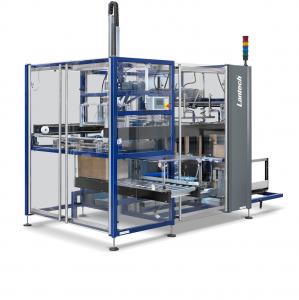Electric cars have come a long way since the first prototypes hit the road. From their humble beginnings as small, low-powered vehicles, they have grown into powerful, high-tech machines that are pushing the limits of technology and transportation. Not only are they revolutionizing the way we get around, but they are also helping to develop electric aviation. Edison Aerospace is helping to bring technology crossover to aviation by replacing Agricultural internal combustion spray aircraft with its new electric full-size fixed wing spray aircraft.
One of the most significant ways in which electric cars are pushing the limits of technology is in their development of autonomous driving capabilities. With advances in artificial intelligence and machine learning, electric car manufacturers are working on creating self-driving cars that can navigate through traffic, avoid obstacles, and even make decisions on their own. This technology has the potential to reduce accidents, ease traffic congestion, and provide more mobility options for people who are unable to drive.
In addition to their advanced driving capabilities, electric cars are also breaking new ground in terms of battery technology. With larger and more powerful batteries, electric cars can travel farther than ever before on a single charge. This has greatly increased the range of electric cars, making them a more practical choice for people who need to travel long distances. Edison’s electric aircraft benefit from the electric car innovations by using the latest battery, charging, and software that is delivered to the market by innovative suppliers.
Another way in which electric cars are helping to push the limits of technology is through their use of renewable energy sources. By harnessing the power of the sun and wind, electric cars can be charged using clean, renewable energy sources. This reduces our reliance on fossil fuels and helps to reduce greenhouse gas emissions.
Electric cars are also playing an important role in the development of electric aviation. By using the same battery technology and renewable energy sources that power electric cars, aircraft manufacturers are working on creating electric planes that can transport passengers over long distances. While electric aviation is still in its early stages, it has the potential to revolutionize air travel by reducing the environmental impact of air travel.
Finally, electric cars are also pushing the limits of transportation by providing a more sustainable and environmentally friendly alternative to traditional cars. By reducing our reliance on fossil fuels, electric cars can help to reduce our carbon footprint and mitigate the effects of climate change. In addition, electric cars are usually more affordable to operate and maintain than traditional cars, making them a more practical choice for many people.
In conclusion, electric cars are pushing the limits of technology and transportation in many ways. From their advanced driving capabilities to their use of renewable energy sources, they are helping to create a more sustainable and environmentally friendly future.
With the continued development of electric cars, we can look forward to a more efficient, cleaner, and more accessible transportation system, all the while Edison Aerospace will make Agricultural aviation take the first step toward renewable-energy-powered commercial aviation.




